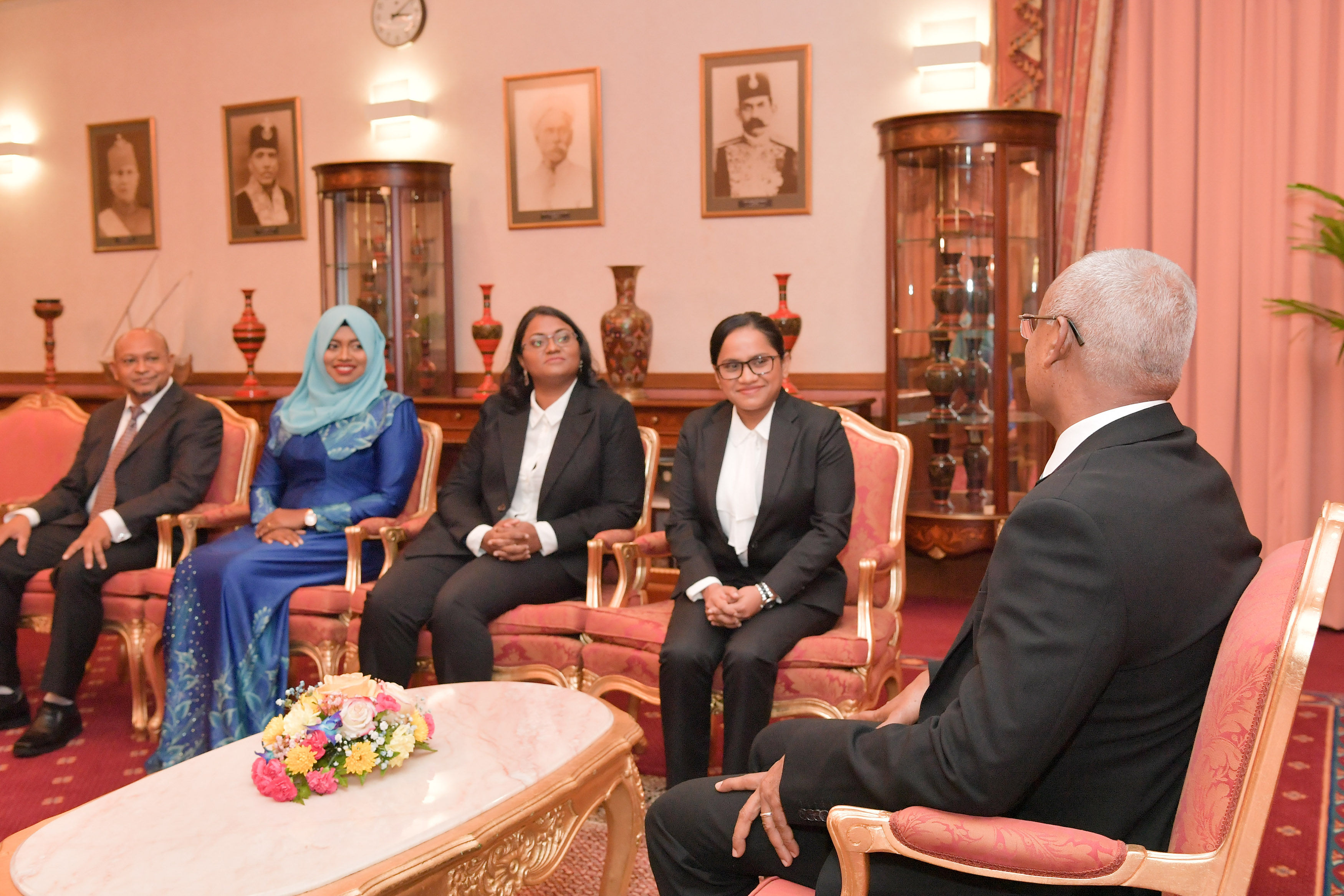New members appointed to anti-corruption watchdog
Two women were chosen as president and vice president for the first time.

10 Sep 2019, 09:00
President Ibrahim Mohamed Solih on Monday appointed new members to the Anti-Corruption Commission after the five-year term of former members expired.
The nominees approved by parliament for the five-member commission were Ibrahim Shakeel, Fathmath Anoola, Mariyam Shiuna, Aishath Abdulla and Ali Ashraf.
Shakeel, a former central bank official, was appointed last month after the resignation of former ACC president Hassan Luthfee. The other four were appointed on Monday during a ceremony at the president’s office. Oaths of office were administered by Supreme Court Justice Adam Mohamed Abdulla.
At their first meeting, the new members voted to elect Shiuna as president and Anoola as vice president, marking the first time that two women were chosen to lead an independent commission.
Become a member
Get full access to our archive and personalise your experience.
Already a member?
Discussion
No comments yet. Be the first to share your thoughts!
No comments yet. Be the first to join the conversation!
Join the Conversation
Sign in to share your thoughts under an alias and take part in the discussion. Independent journalism thrives on open, respectful debate — your voice matters.




